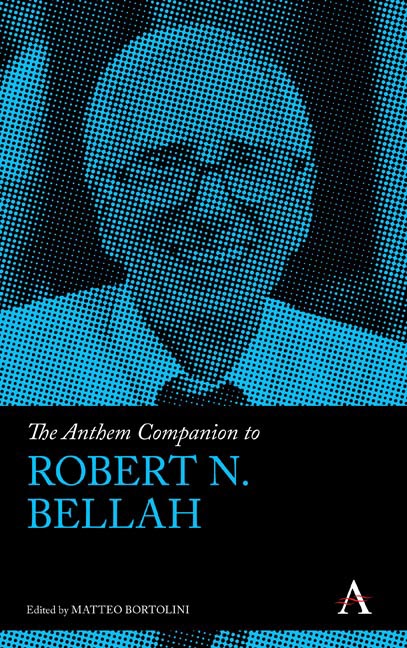Book contents
- Frontmatter
- Contents
- Notes on Contributors
- Introduction: On Being a Scholar and an Intellectual
- Part 1 Major Themes
- Part 2 Yesterday and Today
- Part 3 Unexpected Masters
- Chapter 7 Friends in History: Eric Voegelin and Robert Bellah
- Chapter 8 The Protestant Imagination: Robert Bellah, Maruyama Masao and the Study of Japanese Thought
- Index
Chapter 7 - Friends in History: Eric Voegelin and Robert Bellah
from Part 3 - Unexpected Masters
Published online by Cambridge University Press: 06 July 2019
- Frontmatter
- Contents
- Notes on Contributors
- Introduction: On Being a Scholar and an Intellectual
- Part 1 Major Themes
- Part 2 Yesterday and Today
- Part 3 Unexpected Masters
- Chapter 7 Friends in History: Eric Voegelin and Robert Bellah
- Chapter 8 The Protestant Imagination: Robert Bellah, Maruyama Masao and the Study of Japanese Thought
- Index
Summary
In California in 1985, two social scientists of the highest rank looked back on their respective careers, and forward to what would come next. The elder of the two, Eric Voegelin (b. 1901), lay on his deathbed in Palo Alto, dictating, with failing voice, an essay on the meaning of the word “God” that exemplifies and indeed recapitulates his lifelong pursuit of humanity and order. In Berkeley, Robert Neelly Bellah (1927– 2013), who was still rising to the height of his scholarly powers, was rethinking the assumptions behind his early work as he penned the preface for a new edition of the study of modernization in Japan that had launched his academic career. Had their professional lives unfolded only slightly differently, these men might have been two ships passing in the night. They were separated, in age, by a generation, and, intellectually, by differences of academic discipline, political outlook, scholarly temperament and national background.
Voegelin was born in Germany, and moved with his parents to Austria as a child. He earned a doctorate, and subsequently habilitation, in the Faculty of Law at the University of Vienna. As a young man, Voegelin was politically engaged through his writings on modern ideologies and constitutional law. Soon after the Anschluss, he lost his job and nearly his life; while he managed to evade the Nazis, he was ever after dubious of the public efficacy of scientific truth. Although originally credentialed as a sociologist, by the time of his forced emigration in 1938 he knew he “wanted to become a political scientist,” and left academic sociology behind. In 1942 Voegelin secured a professorship in the Department of Government at Louisiana State University. In the 1950s, somewhat to his chagrin, his writings found a following among the founders of the American conservative movement. He returned to Germany to establish the Institute of Political Science at the University of Munich in 1958. He retired to California in 1969, accepting an appointment at the Hoover Institution at Stanford University, which he held until 1974. By the end of his life, he had secluded himself in the pursuit of esoteric philosophical questions using an idiosyncratic poetic- technical vocabulary.
- Type
- Chapter
- Information
- The Anthem Companion to Robert N. Bellah , pp. 165 - 190Publisher: Anthem PressPrint publication year: 2019



